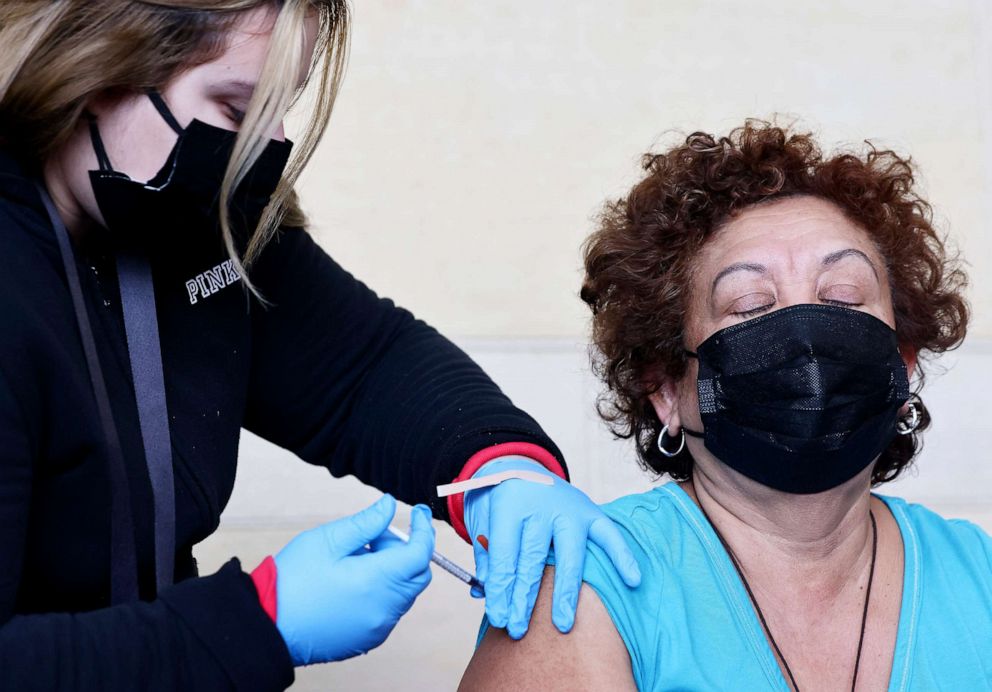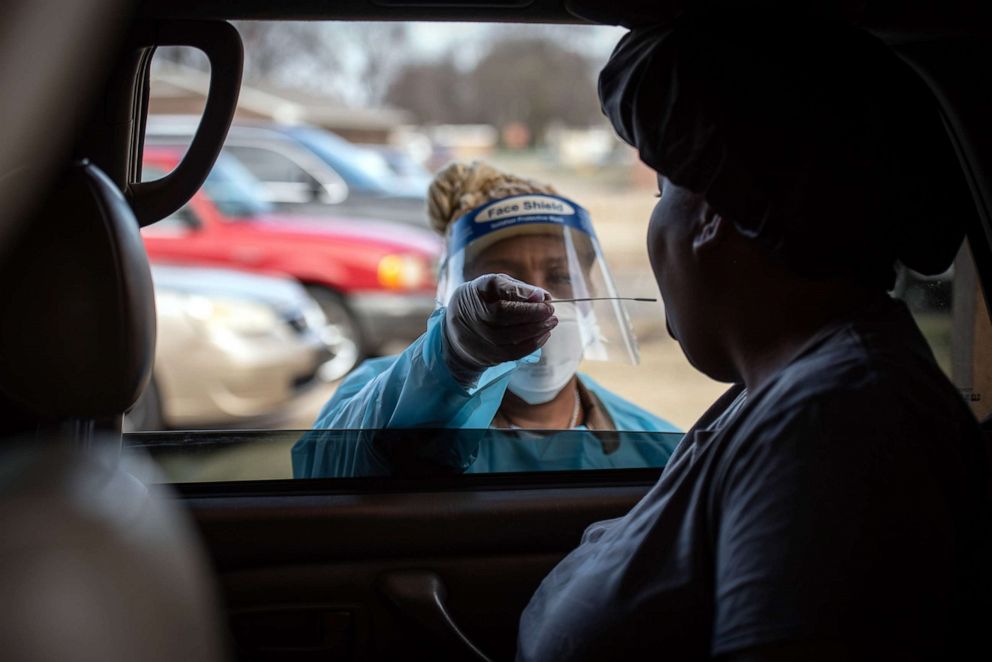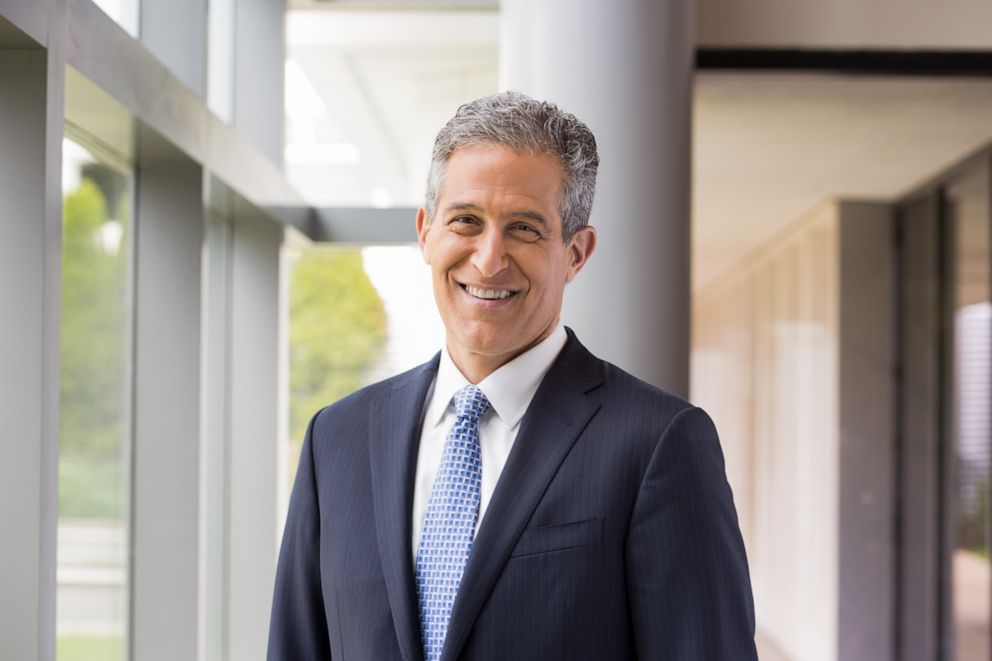The work toward equity that awaits a pandemic-weary nation: ANALYSIS
The nation will soon mark 1 million COVID-19 deaths.
For many Americans, this spring brings hope for brighter days. The worst of this winter's devastating omicron wave has passed, and the parts of our lives that were taken so abruptly from us -- family gatherings, the company of friends, a regular school day -- are once again more the rule than the exception. We have earned the right to appreciate this moment.
But as we allow ourselves to breathe a little easier, we do so with a heavy heart. The United States will soon mark the unfathomable milestone of 1 million COVID-19 deaths. More than 200,000 children have lost a parent or caregiver to COVID-19, and the youth mental health crisis has only grown. Stark inequities have forced people of color -- who comprise more than 40% of our nation's heroic essential workers -- to shoulder a disproportionate burden throughout the pandemic.
Tens of millions of Americans still lack the basic support to keep themselves and their families healthy: a living wage, health care coverage, paid sick or family leave, affordable child care or housing and access to nutritious foods. We all still suffer the consequences of an underfunded and chronically neglected public health system.
At the outset of the pandemic, I predicted the disparate impacts that ultimately emerged. Indeed, the vulnerabilities in March 2020 were the same ones that existed when I led emergency preparedness and response at the Centers for Disease Control and Prevention following Hurricane Katrina in 2005 and as acting CDC director at the dawn of the H1N1 pandemic in 2009.

We enter crises ill-equipped to handle them and we exit crises by quickly forgetting our promises to learn from past mistakes. Two years into this scourge, not enough has been done to prevent the next pandemic from playing out like this one or address how -- pandemic or not -- every day is needlessly a health emergency for far too many people.
In some respects, the nation has risen to the challenge over the past two years. Congress and administrations led by Republicans and Democrats have taken initial steps toward addressing the shortcomings of an inherently unfair system that puts workers in lower-paying jobs and people of color at severe disadvantages. Robust payments to families, enhanced support to unemployed workers, funding to keep businesses afloat, moratoria on home evictions, increased access to health care coverage and expanded nutrition assistance have made a real difference. At various points since 2020, the percentage of people living in poverty, without health insurance, and facing food insecurity all declined, the U.S. Census Bureau reported.
Too much of the response, however, has been temporary in nature, forcing a quick return to an unconscionable status quo. Last year, for instance, Congress bolstered the Child Tax Credit by increasing the total amount, providing monthly payments and making those with no or low wages eligible for the maximum benefit. The resulting impact was stunning: child poverty declined by more than 30% during the latter half of 2021, according to a study published by the Columbia University Center on Poverty and Social Policy.

At the community health clinic in New Jersey where I treat patients, one mother told me that the monthly payment was the difference between affording an apartment where her daughter had her own room and being forced to share a bed in a motel. Yet, rather than make the expanded credit permanent, Congress let it expire. More than 3 million children have since fallen back into poverty and it is harder for millions of families to pay the bills.
Other examples abound. The subsidies that spurred a significant drop in the number of Americans without health insurance will soon expire, while millions of additional Americans risk losing Medicaid coverage when the public health emergency ends. Tax credits encouraging employers to provide paid leave benefits have also expired, as the United States continues to remain alone among wealthy nations in failing to offer paid leave to every worker; in fact, nearly two-thirds of lower-wage workers have no paid sick days at all.

Once again, it's easy to predict that Americans with the lowest wages and without essential benefits such as health insurance and paid leave will be hit the hardest as the pandemic continues or during a future crisis.
No one knows whether this moment truly marks the true endgame for this pandemic, but it is certain that we must do more to become a fairer, healthier and more compassionate nation. Ensuring that all Americans can earn a decent living, receive proper health care, put food on the table and provide for their children should not be temporary objectives; they must be our nation's calling. The policy response to the pandemic offers a successful blueprint for fixing what has long been broken.
America's frayed social contract left us wholly unprepared for COVID-19; the clear lessons of this crisis cannot be ignored. The foundation for a better future has been laid and tested. It is strong. Now we must further strengthen our nation with long-term investments that create opportunity and security for all. We have been afforded a moment of relative calm, at least regarding this pandemic. Let us use it wisely.
Richard E. Besser, a physician, is president and chief executive of the Robert Wood Johnson Foundation in Princeton, New Jersey. He was previously the chief health and medical editor at ABC News. His views are not those of ABC News.




